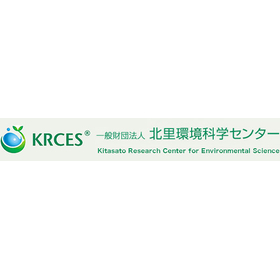Conduct "fluorescent antibody staining - microscopy examination method" using a microscope, and perform indicator bacteria testing to confirm contamination with indicators!
We would like to introduce the "Cryptosporidium Testing" conducted at our center. Cryptosporidium and Giardia (hereinafter referred to as "Cryptosporidium, etc.") are chlorine-resistant pathogenic microorganisms (protozoa) that are difficult to eliminate with chlorine used for disinfecting tap water. When the water source of tap water is contaminated with animal-derived Cryptosporidium, etc., it can cause diarrhea, abdominal pain, and fever, leading to large-scale outbreaks in the water supply area. The testing methods for Cryptosporidium, etc. are established by the Ministry of Health, Labour and Welfare in the "Guidelines for Measures Against Cryptosporidium, etc. in Water Supply." We conduct "Fluorescent Antibody Staining - Microscopic Examination" using a microscope, as well as indicator bacteria testing to confirm contamination. [Testing Details] ■ Fluorescent Antibody Staining - Microscopic Examination ■ Indicator Bacteria Testing *For more details, please download the PDF or feel free to contact us.
Inquire About This Product
basic information
For more details, please download the PDF or feel free to contact us.
Price range
Delivery Time
Applications/Examples of results
For more details, please download the PDF or feel free to contact us.
catalog(1)
Download All CatalogsCompany information
The Kitasato Environmental Science Center, a general incorporated foundation, was established in April 1977 with the aim of widely returning the results of its activities to society, based on the Kitasato University School of Hygiene's Environmental Health Research Center. Our organization is enriched by an intellectual environment, utilizing the intellectual property accumulated over the century by the Kitasato Institute and Kitasato University, which has a wide range of experts in various fields, and striving for the improvement and refinement of technology through appropriate daily guidance. Our activities mainly consist of two areas: "academic-related projects" and "inspection and testing projects." We actively engage in public interest activities related to hygiene, such as research, consultation, technical guidance, and dispatching lecturers, while also operating as a neutral and fair inspection and testing organization, aiming to maintain a healthy sanitary environment and quality of life in the local community with high precision technology and quality.





![[Analysis Case 7] All items of the Soil Contamination Countermeasures Act from the construction industry.](https://image.mono.ipros.com/public/product/image/f12/2000448507/IPROS87785591641693180769.jpeg?w=280&h=280)


![[Processing Service] Main Axis Familiarity Inspection](https://image.mono.ipros.com/public/product/image/2116905/IPROS6987624549298699762.png?w=280&h=280)



![Trace analysis of haloacetic acids, dalapon, and bromate in drinking water [Technical Document]](https://image.mono.ipros.com/public/product/image/0a2/2001531759/IPROS14321608071454881445.jpg?w=280&h=280)
